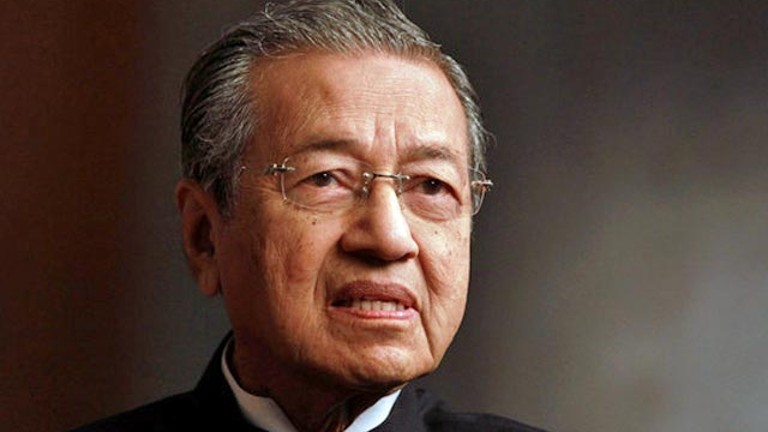KUALA LUMPUR, (Reuters) – Former Malaysian leader Mahathir Mohamad, joining anti-government protesters for a second day today, called for a “people’s power” movement to topple Prime Minister Najib Razak over a financial scandal.
“The only way for the people to get back to the old system is for them to remove this prime minister,” said Mahathir, a deeply respected 90-year-old who was once Najib’s patron and is now his fiercest critic.
“And to remove him, the people must show people’s power. The people as a whole do not want this kind of corrupt leader,” he told media before heading to the rally, whose numbers police estimated at 25,000 on Sunday afternoon.
The protest has brought into the streets a political crisis triggered by reports of a mysterious transfer worth more than $600 million into an account under Najib’s name.
Najib, who denies wrongdoing, has weathered the storm and analysts say the protest is unlikely to inspire broad public support for him to quit because it lacks a strong leader.
These protests, unlike the 2012 rally, also lack the support of a party identified with the Malay majority: most protesters were from the minority ethnic Chinese and Indian communities.

However, Mahathir – the country’s longest-serving leader – was a leader of the ruling United Malays National Organisation (UMNO), which represents Malays.
UMNO Vice-President Hishammuddin Hussein said that by turning up unexpectedly at the anti-government rally on Saturday, Mahathir had “crossed over the line”.
Another UMNO leader said a million government supporters would stage a “red shirts” rally on Oct. 10 that would trump the protests of the past two days.
“This shows the solidarity of Malaysians, that Najib still has the majority support,” Jamal Yunos told Reuters.
Mahathir’s siding with protesters sits oddly with the often-authoritarian style of his own 22-year rule until 2003, during which Malaysia became a powerhouse of economic development but also won a reputation for cronyism and dubious “mega-projects”.





